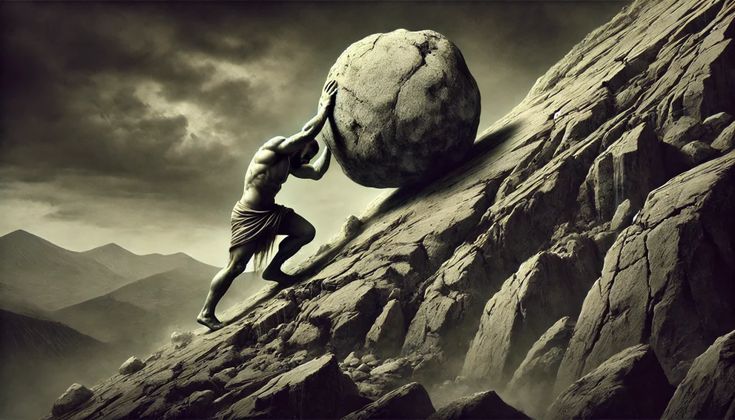Why Philosophy is Important ?
Who am I?
What am I doing here?
What is the meaning of life?
What is truth?
What is purpose?
If you’ve ever asked yourself any of these questions — congratulations! You’ve already engaged with philosophy, whether you realized it or not.
From the beginning, humanity has sought knowledge about every aspect of reality. We created different tools for different domains: to understand natural phenomena, we developed physics; to reach beyond the limits of what we could observe, we turned to religion. Science relies on empiricism, religion relies on belief — but philosophy relies purely on the human faculties of logic and reasoning. All these pursuits, at their heart, have been about moving closer and closer to the truth.

The word “philosophy” comes from Greek origins and simply means "love of wisdom." But philosophy refuses to be put in a simple box. It is the art of reasoning upon reasoning.
When you think about it, your own worldview — your beliefs, your values, your understanding of right and wrong — is a kind of personal philosophy. Through life, you encounter countless experiences and perceptions, and you process them through thought, reflection, and analysis. What comes out is knowledge — or at least, a version of it — which you continue to test and refine as you live.
This ongoing process of thinking, testing, and learning is the very framework of philosophy.
Philosophy provides us with the tools to question, explain, and make sense of anything. But it’s not a free-floating exercise of thought alone. Our philosophical insights need some kind of foundation — a commitment to truth, however difficult or uncomfortable. Without that foundation, philosophy risks becoming an endless maze of rationalizations without direction.
A good philosophy, especially one that guides your life, should add value by helping you see the world more clearly, judge more wisely, and move closer to what is real and true.

The field of philosophy itself is vast, with many major pillars:
1-Epistemology (the study of knowledge)
2-Metaphysics (the study of reality)
3-Ethics (the study of right and wrong)
4-Aesthetics (the study of beauty and taste)
5-Logic (the study of valid reasoning)
At its core, philosophy is the disciplined practice of making clear, coherent arguments — and being willing to test them rigorously against objections. To truly understand philosophy, you must grasp both its subject matter and its method: forming arguments, questioning assumptions, and refining ideas through dialogue.
Throughout history, great minds have grappled with the big questions.
For Instance , In ancient Greece, philosophers like Socrates, Plato, and Aristotle pondered the nature of truth, justice, and the good life. Socrates famously said that "the unexamined life is not worth living" — and he lived by that principle so fiercely that he chose death by hemlock rather than abandon his mission to provoke questioning.
Later thinkers like Descartes, Kant, and Schopenhauer wrestled with the nature of reality and existence, pushing the boundaries of human understanding.
The 19th century gave rise to philosophers like Nietzsche, Kierkegaard, and Sartre, who introduced us to existentialism, nihilism, and transcendentalism — powerful philosophies that tried to make sense of a world where old certainties were crumbling.

Meanwhile, in the East, philosophical traditions emphasized harmony with the natural and social worlds. Gautam Buddha offered a philosophy of living aimed at liberation from suffering — a path that eventually inspired a religion. Muslim philosophers like Al-Farabi, Avicenna, and Al-Ghazali explored metaphysics, ethics, and the nature of God with remarkable depth and sophistication.
Closer to our time, thinkers like Allama Iqbal blended Nietzschean individualism with Islamic spirituality to offer a vision of selfhood rooted both in personal strength and divine connection.
Across cultures and centuries, philosophy has demanded the same things: critical thinking, clarity, precision, truthfulness, completeness, and the courage to face objections head-on.
And make no mistake — philosophy has never been a "safe" pursuit.
Throughout history, those who dared to question established truths often paid a heavy price.
Socrates was executed by the Athenian democracy for “corrupting the youth.”
Giordano Bruno, who envisioned an infinite universe, was burned at the stake.
Hypatia of Alexandria, a brilliant mathematician and philosopher, was brutally murdered by a mob for teaching ideas that threatened religious orthodoxy.
Yet despite these risks — or perhaps because of them — philosophy remains meaningful.
It frees us from mechanical patterns of thinking.
It demands that we think for ourselves rather than blindly following tradition, fashion, or authority.
It disciplines the mind to reason correctly, even when emotions cloud our judgment.
It helps us stay steady when the world around us seems lost in confusion.
In a time when we are constantly bombarded by noise — opinions, information, outrage — philosophy gives us a quiet strength. It reminds us that thinking deeply, questioning honestly, and seeking truth courageously are not luxuries.
They are necessities.
Author: Mazhar Iqbal
Researcher: Malaika Arshad